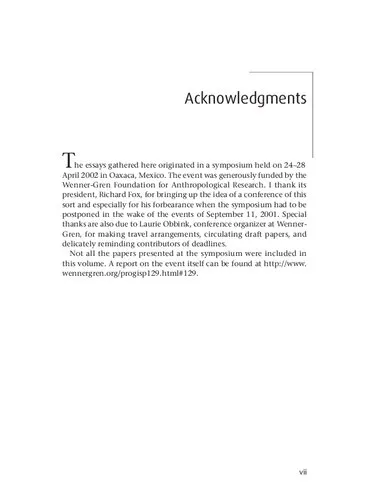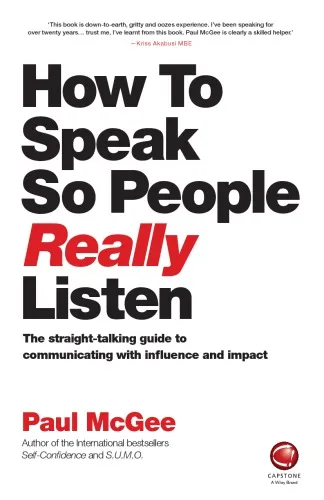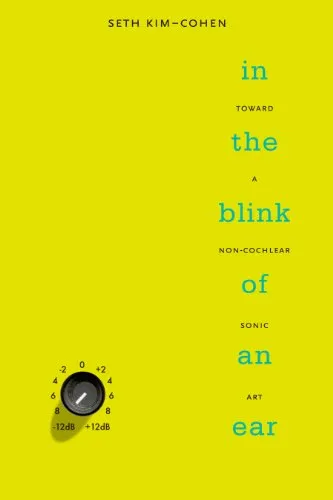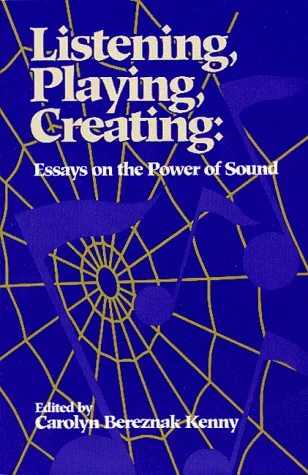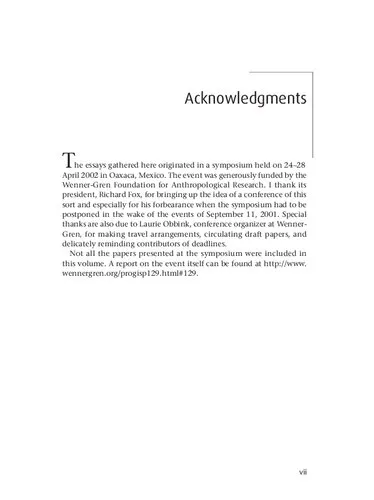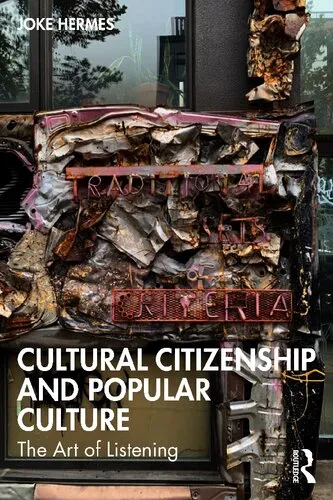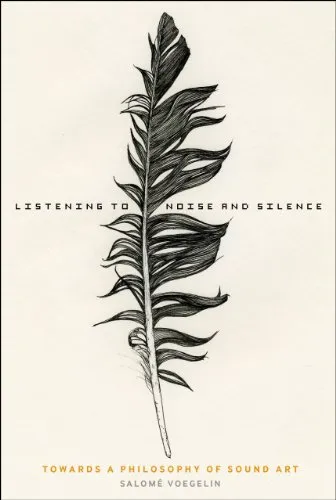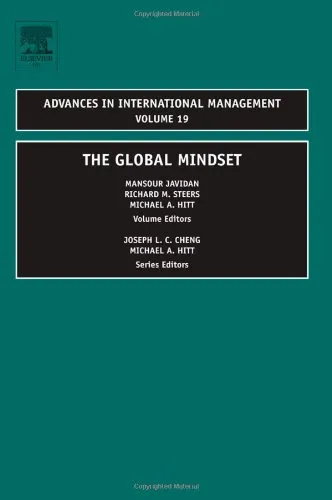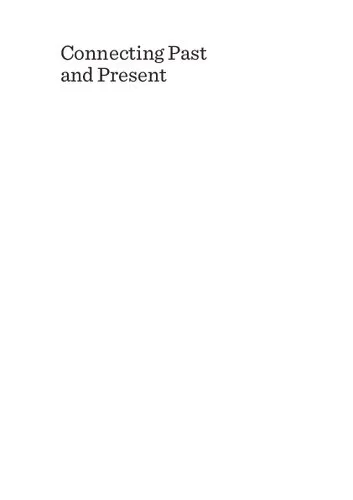Hearing Cultures: Essays on Sound, Listening and Modernity (Wenner Gren International Symposium Series)
4.0
بر اساس نظر کاربران

شما میتونید سوالاتتون در باره کتاب رو از هوش مصنوعیش بعد از ورود بپرسید
هر دانلود یا پرسش از هوش مصنوعی 2 امتیاز لازم دارد، برای بدست آوردن امتیاز رایگان، به صفحه ی راهنمای امتیازات سر بزنید و یک سری کار ارزشمند انجام بدینکتاب های مرتبط:
معرفی کتاب
کتاب «Hearing Cultures: Essays on Sound, Listening and Modernity» یک مجموعه مقالات بینارشتهای و منحصربهفرد است که به بررسی ابعاد فرهنگی، اجتماعی و تاریخی صدا، گوش دادن و شنیداری در دنیای مدرن میپردازد. این اثر که تحت نظر من، «ویت ارلمان»، تدوین شده است، از اساتید و متخصصان برجستهای در حوزههای مختلف همانند انسانشناسی، تاریخ، مطالعات فرهنگی و موسیقیشناسی بهره میبرد. هدف کتاب ارائه نگرشی نو و عمیق به ارتباط بین صدا و فرهنگ جوامع مختلف است.
خلاصهای از کتاب
در این کتاب، مقالات مختلفی گردآوری شدهاند که هر کدام از منظرهای گوناگون به پدیده صدا و شیوههای گوش دادن در فرهنگها و موقعیتهای مختلف مینگرند. از نگاهی انسانشناسانه به صدا در جوامع قبیلهای گرفته تا تاثیر تکنولوژی مدرن بر تجربه شنیداری، این اثر به شکلی جامع و چندوجهی تنظیم شده است. هدف اصلی کتاب برجسته ساختن این حقیقت است که شنیدار، صرفاً فعالیتی فیزیکی و مکانیکی نیست، بلکه فعالیتی فرهنگی، اجتماعی و تاریخی است که در هر جامعه با معانی و ساختارهای خاص خود فهمیده میشود.
یکی از نکات برجسته این کتاب، تاکید بر چگونگی تغییر صدا و تجربه شنیداری تحت تاثیر عوامل مدرنیته و پیشرفت تکنولوژی است. مقالات مختلف نشان میدهند که چگونه ابزارهای مدرن مانند رادیو، تلفن، و دستگاههای ضبط صدا تجربه شنیداری ما را بازتعریف کرده و روابط اجتماعی و فرهنگی را تغییر دادهاند.
نکات کلیدی
- صدا به عنوان بخش جداییناپذیر از هویت فرهنگی و اجتماعی جوامع.
- اهمیت تکنولوژی در بازتعریف تجربه شنیداری مدرن.
- روابط بین صدا و قدرت در جوامع گوناگون.
- تفاوتهای بینفرهنگی در نحوه درک و تجربه صدا.
- تغییرات شنیداری در دوران مدرن و پسامدرن.
جملات معروف از کتاب
"To hear is always to be in the world—a world that is not neutral but shaped by culture, power, and history."
"Sound is not just something we hear; it is something we feel, something we live through."
چرا این کتاب اهمیت دارد؟
کتاب «Hearing Cultures» از جمله آثاری است که فراتر از رویکردهای رایج به تحلیل صدا میپردازد و اهمیت این پدیده را در رابطۀ آن با فرهنگ، هویت و قدرت نشان میدهد. این اثر منحصر به فرد در بررسی چندصدایی و چندلایگی تجربه شنیداری، درک ما از تعاملات انسانی را گسترش میدهد. این کتاب برای پژوهشگران، دانشجویان، و علاقهمندان به حوزههای انسانشناسی، مطالعات فرهنگی، موسیقی، و علوم اجتماعی منبعی ارزشمند و ضروری است.
همچنین این کتاب به خوانندگان کمک میکند تا نقش مهمی را که صدا و گوش دادن در شکلگیری تجربیات انسانی ایفا میکنند، درک کنند. این دیدگاه که گوش دادن یک فعالیت منفعلانه نیست، بلکه فعالیتی فعال و معنادار است، از جمله آموزههای کلیدی این اثر است.
Introduction to 'Hearing Cultures: Essays on Sound, Listening and Modernity'
"Hearing Cultures: Essays on Sound, Listening and Modernity" is a thought-provoking collection of essays that bridges the gap between sound studies, cultural anthropology, sociology, and modern history. Edited by Veit Erlmann, this book delves deeply into the complex and often overlooked dimensions of sound and listening, demonstrating how auditory perception is deeply embedded in cultural and social structures. In this anthology, contributing scholars illuminate how sound and listening practices shape and are shaped by modernity, influence individual and collective identities, and affect our relationships with the world and one another.
The rise of modern sound studies marks a pivotal moment in scholarship, where academia has shifted from a traditionally vision-centric focus to a richer auditory understanding of human experience. This book offers a window into this transformation while challenging readers to think critically about how sound affects their environment, from urban soundscapes to personal habits of listening. With its interdisciplinary approach, "Hearing Cultures" seeks to provide historical insights and contemporary perspectives to help reframe the ways we understand sensory engagement in our globalized world.
Detailed Summary of the Book
The book consists of a series of essays by leading voices in sound and cultural studies, each examining a different aspect of sound and listening within the framework of modernity. These essays explore diverse topics, including the auditory dimensions of space, the political and ideological implications of sound, and how listening practices differ across cultures and historical periods. From the role of sound in ritual performances to the dynamics of noise in urban environments, each chapter presents a fresh perspective on how sound functions as a cultural and historical phenomenon.
The collection begins by reconsidering the notion of listening—what it means to hear and how hearing differs across cultural contexts. Moving on, the essays investigate subjects like the commodification of sound in capitalist societies, the ongoing “sonic war” between tradition and modernity, and the politics of noise and silence. The book draws heavily on ethnographic studies, illustrating its arguments with rich examples from around the world, whether it is the use of sound in religious ceremonies or the societal impact of technologies like the phonograph.
As the essays unfold, a central theme becomes apparent: sound is inseparable from power, space, and social order. The authors argue that auditory perception is not just a passive process but an active, culturally-loaded practice that plays a significant role in shaping identities, hierarchies, and ideologies.
Key Takeaways
- Sound and listening are deeply cultural practices—there is no universal way to hear.
- Modernity has significantly transformed how we engage with and interpret sound, especially through technological advances and industrialization.
- Noise, music, silence, and even the act of listening itself are entangled with political, spatial, and social power dynamics.
- Understanding soundscapes can provide insights into broader societal and cultural dimensions, such as identity, community, and conflict.
- Auditory culture is a valuable lens for examining how humans perceive their place in the world, challenging the traditional dominance of visual analysis.
Famous Quotes from the Book
"Hearing and listening are not merely physiological acts; they are deeply rooted in the cultures and societies to which individuals belong."
"Modernity brought with it not just industrial clamor but also new ways of silencing voices, thereby shaping the politics of the audible."
"The organization of sound in space is as political as it is sensory. To control sound is to control experience."
Why This Book Matters
The importance of "Hearing Cultures" lies not only in its interdisciplinary approach but also in its unique contribution to our understanding of sound and listening as central components of human culture. At a time when the visual often dominates our sensory engagement with the world, this book reminds us of the vital role sound plays in shaping identity, history, and society.
This collection challenges readers—scholars, students, and general audiences alike—to rethink how they perceive sound in their everyday lives. By presenting listening as more than a physiological act and instead framing it as a deeply cultural phenomenon, "Hearing Cultures" reveals how the aural dimensions of life impact everything from public policy to personal agency.
Furthermore, the book is an invaluable resource for anyone interested in sound studies, anthropology, or sociology, offering a fresh perspective on the auditory turn in contemporary scholarship. Through its varied essays, readers are encouraged to explore how listening practices intersect with the rapid transformations of modernity and globalization, making it a critical text for understanding the complexities of the modern world.
دانلود رایگان مستقیم
شما میتونید سوالاتتون در باره کتاب رو از هوش مصنوعیش بعد از ورود بپرسید
دسترسی به کتابها از طریق پلتفرمهای قانونی و کتابخانههای عمومی نه تنها از حقوق نویسندگان و ناشران حمایت میکند، بلکه به پایداری فرهنگ کتابخوانی نیز کمک میرساند. پیش از دانلود، لحظهای به بررسی این گزینهها فکر کنید.
این کتاب رو در پلتفرم های دیگه ببینید
WorldCat به شما کمک میکنه تا کتاب ها رو در کتابخانه های سراسر دنیا پیدا کنید
امتیازها، نظرات تخصصی و صحبت ها درباره کتاب را در Goodreads ببینید
کتابهای کمیاب یا دست دوم را در AbeBooks پیدا کنید و بخرید
1330
بازدید4.0
امتیاز0
نظر98%
رضایتنظرات:
4.0
بر اساس 0 نظر کاربران
Questions & Answers
Ask questions about this book or help others by answering
No questions yet. Be the first to ask!
